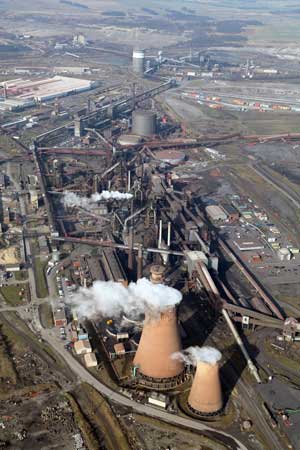
Failure to put in place essential health and safety measures has landed Tata Steel with a fine of £1.4M following the death of a maintenance electrician who was crushed by a crane in April 2010.
Thomas Standerline – a 26 year old employee of the steel producer – had been examining a semi-goliath crane at the steelworks in Scunthorpe as part of his inspection duties.
While carrying out the work, an overhead crane travelled over the cage he was in with low clearance, trapping and then crushing him. Mr Standerline died instantly, Hull Crown Court heard.
An investigation by the Health and Safety Executive (HSE) found that Tata Steel failed to put in place essential control measures which would have prevented the overhead crane from even being in operation. The firm had also failed to enforce its own safety procedures, despite two similar incidents that took place prior to Mr Standerline’s death.
The company pleaded guilty to breaching Section 2 and Section 3 of the Health and Safety at Work Act 1974, and was fined £1.4M with costs of £140,000.
HSE principal inspector Kirsty Storer said: “This tragic loss of life could have been avoided had the company adhered to and enforced its own safety procedures. Despite two previous incidents sharing features with the one which ultimately cost Mr Standerline his life, the company failed both to take these as a warning sign and to act on safety recommendations.”
Also speaking after the hearing, a member of Mr Standerline’s family said: “Thomas’s death has devastated us as a family. He was well loved by everyone who knew him, and had lots of friends. Every day we think about what might have been if he had still been here.” The family member added: “We would like to thank all those who have helped and supported us over the course of the last eight years.”
Comment
Matthew Breakell of solicitors DAC Beachcroft says the Tata Steel fine shows the courts are getting increasingly serious about punishing health and safety breaches.
2nd February 2018 marks the second anniversary of the implementation off the Sentencing Council’s Definitive Guideline for the sentencing of Health and Safety Offences, Corporate Manslaughter and Food Safety and Hygiene Offences.
In 2017 we saw, as predicted, that the courts weren’t shy about imposing high fines for organisations and custodial sentences for individuals for breaching health and safety legislation.
The principal focus of the guideline is to ensure fines are ‘sufficiently substantial to have a real economic impact which will bring home to both management and shareholders the need to comply with health and safety legislation’.
A significant number of cases, such as the Tata Steel case, have attracted fines in excess of £1m, many in non-fatal cases and this is a trend that is likely to continue.
The 2016/17 data on prosecutions released by the Health and Safety Executive (HSE) shows a large annual increase in fines, rising from £38.8M in 2015/16 to £69.9M in 2016/17. The average fine per case in 2016/17 was approximately £126,000, which is more than double the average fine in 2015/16. Notably, the ten highest fines in 2017 ranged between £1.35m and £3m.
There is no doubt that the sharp increase in fines over the last two years is the subject of regular discussion in boardrooms up and down the country.
Whilst this is the first full year that the sentencing guidelines have been in effect, it is the second consecutive year which has seen a large increase in the amount of fines following convictions for health and safety offences, a trend which is undoubtedly set to continue.
The increasing level of fines demonstrates the importance of organisations taking preventative action, such as:
- regularly reviewing health and safety policies and procedures
- ensuring that risk assessments and method statements are in place and that they adequately reflect the risks involved,
- providing refresher training to staff
- and ensuring the proactive and effective management of health and safety in the workplace.
The increasing trend in high fines and custodial sentences also highlights the importance of careful management of the regulator’s investigation to minimise risk and financial exposure for a company, personal exposure for individuals and the preparation of a robust defence, where justified.

